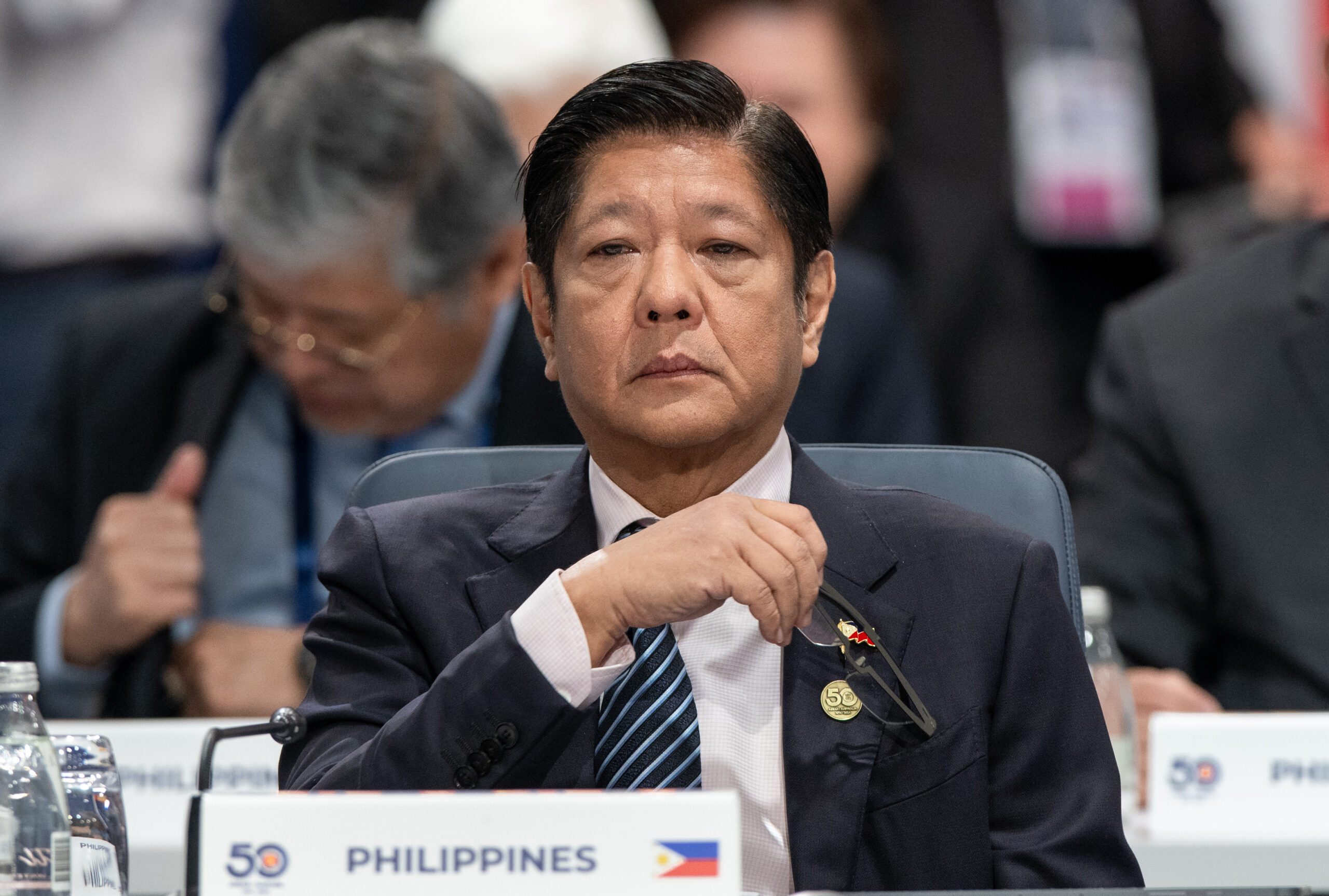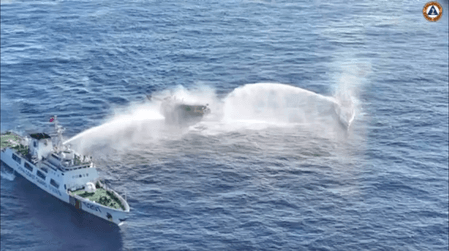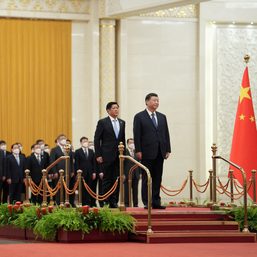SUMMARY
This is AI generated summarization, which may have errors. For context, always refer to the full article.

MELBOURNE, Australia – President Ferdinand Marcos Jr. on Wednesday, March 6, said it is not the time to invoke the country’s Mutual Defense Treaty with the United States, even after four Navy personnel sustained minor injuries from actions of the China Coast Guard in the West Philippine Sea.

“I do not think that it is a time or the reason to invoke the Mutual Defense Treaty. However, we continue to view with great alarm this continuing dangerous maneuvers and dangerous actions that are being done against our seamen, our Coast Guard,” Marcos said in a recorded interview, responding to questions sent by Philippine media in Australia.
The MDT, signed in 1951, means that both countries are compelled to come to each other’s defense in the event of an armed attack. The US, in a statement from State Department spokesperson Matthew Miller, affirmed on March 5 that the MDT covers “armed attacks on Philippine armed forces, public vessels, or aircraft – including those of its Coast Guard – anywhere in the South China Sea.”
Marcos is in Melbourne to attend a special summit hosted by Australia. He is flying back to Manila late Wednesday.
On March 5, two China Coast Guard ships used their water cannons on the smaller Unaizah May 4, a civilian ship tapped by the Philippine Navy to bring supplies to the BRP Sierra Madre, a World War II ship ran aground on purpose in Ayungin Shoal.
The pressure from the water cannons shattered the wind shield of the resupply ship, leaving four Navy personnel with minor injuries, including small cuts.
The same China Coast Guard ships collided with a Philippine Coast Guard ship and the same Unaizah May 4, as they tried to block the Philippine ships from reaching Ayungin Shoal.
The other resupply ship, the Unaizah May 1, made it past China’s blocking attempts and reached the BRP Sierra Madre.
“This time, they damaged the cargo ship and caused some injury to some of our seamen and I think that we cannot view this in any way but in the most serious way,” said Marcos.
“Once again, we will make our objections known and hope that we can continue to communicate to find a way so that such actions are no longer seen in the West Philippine Sea,” he said, without elaborating.
‘Downright uncivilized’
In a separate statement on March 6, Philippine Defense Secretary Gibo Teodoro said the China Coast Guard and Chinese Maritime Militia’s actions in the West Philippine Sea “are patently illegal and downright uncivilized.”
“They take great pains to mischaracterize their provocations as lawful under international law and the actions of their CCG and Maritime Militia as ‘professional, restrained, reasonable, and lawful.’ This claim is, simply put, one that no right-thinking State in the world agrees with and which many outright condemn,” added Teodoor, whose portfolio includes the Philippine military.
The Philippines’ Department of Foreign Affairs (DFA) earlier summoned China’s Deputy Chief of Mission, telling Beijing to make its vessels “leave the vicinity of Ayungin Shoal immediately.” The Philippine embassy in Beijing has also lodged a protest before China’s Foreign Affairs Ministry.
Ayungin Shoal is a feature in the West Philippine Sea, or part of the South China Sea within the Philippines’ exclusive economic zone. China claims practically all of the South China Sea, despite a 2016 Arbitral Ruling deeming their claim invalid. – Rappler.com
Add a comment
How does this make you feel?

![[In This Economy] Marcos’ POGO ban is popular, but will it work?](https://www.rappler.com/tachyon/2024/07/thought-leaders-marcos-pogo-ban.jpg?resize=257%2C257&crop=255px%2C0px%2C720px%2C720px)
![[Rappler Investigates] POGOs no-go as Typhoon Carina exits](https://www.rappler.com/tachyon/2024/07/newsletter-graphics-carina-pogo.jpg?resize=257%2C257&crop=424px%2C0px%2C1080px%2C1080px)









![[Just Saying] Invoke the Mutual Defense Treaty](https://www.rappler.com/tachyon/2024/06/TL-invoke-mutual-defense-treaty-June-25-2024.jpg?resize=257%2C257&crop_strategy=attention)
![[Rappler’s Best] Divided we fall](https://www.rappler.com/tachyon/2024/06/Divided-we-fall.jpg?resize=257%2C257&crop=363px%2C0px%2C720px%2C720px)





There are no comments yet. Add your comment to start the conversation.